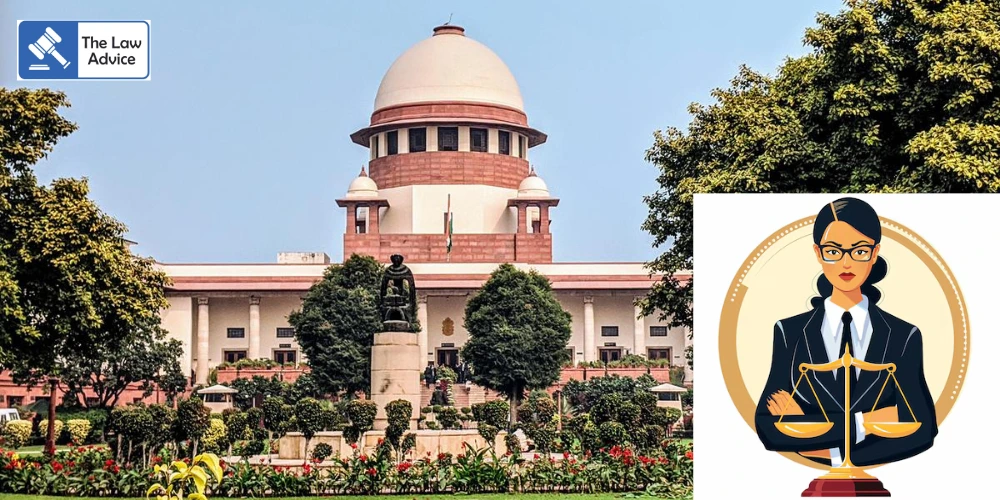New Delhi | August 29, 2025
In an unprecedented show of solidarity, four senior women advocates have extended public support to Justice B.V. Nagarathna’s “lone dissent” in the Supreme Court Collegium’s recommendation to elevate Justice Vipul Pancholi, Chief Justice of the Patna High Court, to the Supreme Court.
The statement, issued by Senior Advocates Mahalakshmi Pavani, Shobha Gupta, Aparna Bhat, and Kaveeta Wadia, underscores concerns about the Collegium’s opacity, gender imbalance in judicial appointments, and the sidelining of dissenting voices within the highest judicial decision-making body.
The four advocates expressed disappointment that Justice Nagarathna’s dissent was neither acknowledged nor published by the Collegium despite her insistence.
“We wish to publicly acknowledge that your lone dissent on the other side has huge support on this side. We express our disappointment with the manner in which your lone dissent is not even highlighted in recommendations despite your wishes to the contrary.”
The Central Government had, just a day earlier, notified the appointment of Justice Pancholi along with Justice Alok Aradhe (Chief Justice of the Bombay High Court) as Supreme Court judges. Both are slated to take oath today.
Justice Nagarathna reportedly objected to Justice Pancholi’s elevation, citing concerns about his prior transfer from the Gujarat High Court to the Patna High Court in 2023—a move alleged to be “not routine.” Civil society groups, including the Campaign for Judicial Accountability and Reforms (CJAR), have demanded publication of her dissent note and disclosure of reasons behind this unusual transfer.
Retired Supreme Court judge Justice A.S. Oka has also called it a “matter of grave concern” that her dissent has been suppressed.
Bar’s Silence and Lack of Transparency
The four senior advocates expressed alarm at what they described as “deafening silence” from both the Bar and the Bench on the erosion of transparency in judicial appointments.
“We are alarmed at the deafening silence from all corners, both Bar and the Bench, after publicly acknowledging the need for transparency and the astonishing indifference when it comes to actually putting the same in practice. Dissent is a pillar of democracy and cannot be brushed aside.”
They invoked the Supreme Court’s ruling in Romila Thapar vs. Union of India (2018) 10 SCC 753, where dissent was hailed as a “symbol of a vibrant democracy” and critical for safeguarding institutional integrity.
Gender Justice and Representation at Stake
A major thrust of the senior advocates’ statement concerns the under-representation of women in the Supreme Court. Justice Nagarathna remains the only sitting woman judge after Justices Hima Kohli and Bela M. Trivedi retired.
The statement criticized the Collegium for its “continuous and consistent approach in not elevating women judges,” pointing out that no woman judge has been appointed since August 2021, despite the availability of highly qualified women High Court judges.
Senior Advocate Indira Jaising had also flagged this issue on X (formerly Twitter), noting that Justice Sunita Agarwal (Chief Justice of Gujarat HC), Justice Revati Mohite Dere (Bombay HC), and Justice Lisa Gill (Punjab & Haryana HC) were overlooked in favour of Justice Pancholi.
“This indefensible approach stands in stark contrast to the stated ideals of gender justice and equity. It violates the established principles of fairness and erodes public faith in the judiciary.”
The statement concluded with a warning that public confidence in the judiciary, the “ultimate sanctuary of justice,” is at risk:
“When public faith in its ultimate sanctuary of justice erodes, darkness descends upon our democracy from which there may be no return. The silence today leads to erosion of that faith and destroys the very institution which is above all of us—the strongest pillar of democracy.”
Key Concerns Raised by Senior Women Advocates
• Suppression of Justice Nagarathna’s dissent in the Collegium resolution.
• Lack of transparency in judicial appointments.
• Ignoring gender representation in the Supreme Court.
• Non-disclosure of reasons behind Justice Pancholi’s transfer from Gujarat to Patna High Court.
• Erosion of democratic values due to sidelining of dissent.
With Justice Pancholi and Justice Aradhe set to take oath, the debate around transparency, judicial accountability, and representation in the Supreme Court Collegium system has once again come under sharp public scrutiny.
